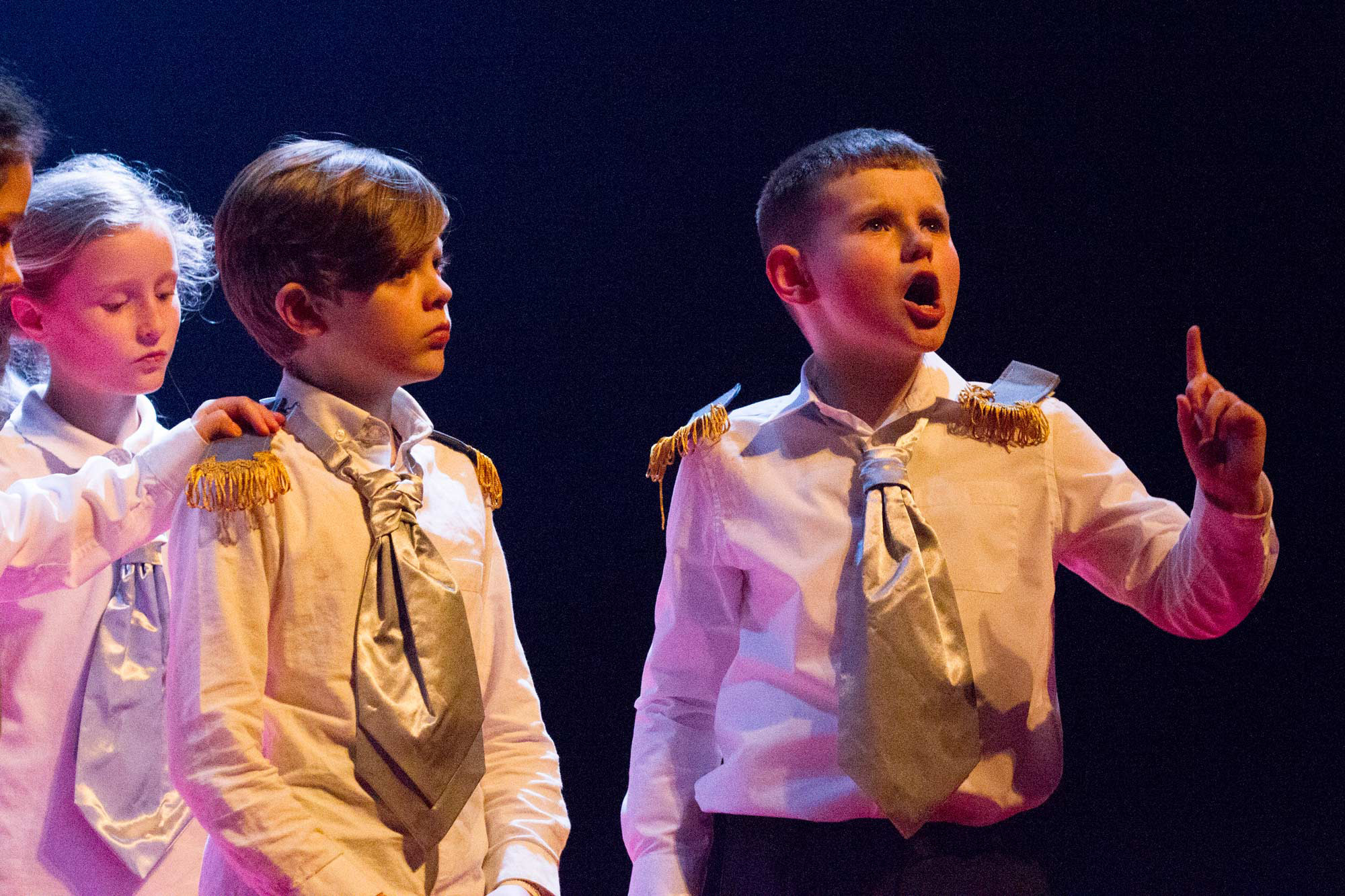Over 150 Kent primary and secondary school pupils came together to present this collaborative version of Julius Caesar under the auspices of the Royal Shakespeare Company’s Associate Schools Programme for which the Marlowe Theatre is a partner.
The play (abridged to under two hours including an interval) is divided into eleven sections with each school responsible for a chunk so, interestingly, we got eleven different directorial styles from Canterbury Primary School’s well grouped crowd scene at the beginning to Ethelbert Primary School’s moving ending as Antony acknowledges the dead Brutus as “the noblest Roman of them all”.
Along the way, among other highlights, there was a first class Cassius (no specific cast list in the programme) from Rochester Girls’ Grammar, a physically stylised battle scene from Folkestone Academy with onstage cello, violin and percussion accompaniment and nice work from The Orchard School (“behaviour and learning difficulties”) who gave us the scene in which Caesar is coaxed to the Capitol.
Almost every school and every scene offered imaginative ensemble work including chanting, creating storms, interesting grouping and more. Teacher/directors, back in their schools, are supported, mentored and offered training from RSC and Marlowe Theatre staff.
It’s a joy to see a completely different sort of audience at the Marlowe Theatre from its usual one. The auditorium was full of parents, siblings including babies in arms, grandparents, teachers and school groups. This is a theatre which is patently reaching out to its community and making itself welcoming and relevant to all.
Even better – this is a national scheme. The RSC has a network of regional theatre partners like the Marlowe all inspiring young people to make Shakespeare their own. Canterbury’s Julius Caesar: Ides of March was just one little corner. Similar shows were staged all over the country last term.
Review by usan Elkin



